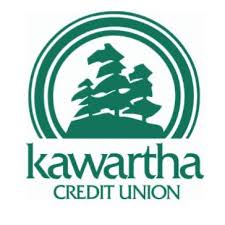2023 tax season primer: Our roundup of the best 25 tax tips for Canadians
Can you still claim work-from-home expenses? What is capital gains tax and how does it work? We answer all your burning questions for the 2023 tax season.
Advertisement
Can you still claim work-from-home expenses? What is capital gains tax and how does it work? We answer all your burning questions for the 2023 tax season.

Before the tax filing deadline rolls around on April 30, 2024, you can avoid missing out on any tax-reducing opportunities—plus, look for any deductions, rebates or tax credits that will help you put some money back in your pocket. Use our income tax guide to help yourself prepare for filing your taxes for last year.
As part of your tax filing prep, you’ll need to get your T4, T4A and/or T4E forms in order. These government documents will help to determine your income. On your T4A, you can also see how much you’ve saved for retirement throughout the year via your registered retirement savings plan (RRSP), if you contributed.
“The T4, or Statement of Remuneration Paid, is a tax slip that employers issue to employees after each calendar year. It includes your earnings, deductions and tax paid so far. The T4A is another tax slip, issued by payers of other amounts related to employment (pension payments, annuities, self-employed commissions, retiring allowances, scholarships, bursaries, research grants, etc.).”
Learn more about these documents: What are T4, T4A, and T4E forms?
Should you put your money in a tax-free savings account (TFSA) or a registered retirement savings plan (RRSP)? The answer depends on your financial situation and your goals.
“With a TFSA, you pay tax on money you’ve earned before you make a contribution; and with an RRSP you get a tax refund now on money you contribute, but will have to pay tax later, on money you withdraw from the plan. This difference, along with your income, your investment timeline, and other factors will all contribute to making the right decision for your investment dollars. You may find that you can use both vehicles simultaneously.”
More on the differences between these investments here: TFSA vs RRSP: How to decide between the two
When investing inside a TFSA or an RRSP, know that tax plays a role in your portfolio construction and returns.
Any income earned in the TFSA, even when it is withdrawn, is tax-free. Any interest, stock dividends and capital gains earned in your TFSA aren’t subject to income tax. But, your TFSA contributions won’t reduce your taxable income the way RRSP contributions do. Withdrawals from your RRSP are taxable based on your income bracket.
“The tax treatment of RRSP and TFSA withdrawals should motivate investors to choose their asset allocation wisely between not only types of stocks, but also stocks and bonds. It may be beneficial to hold more fixed income in an RRSP and more stocks in a TFSA. That way, growth could occur primarily in a tax-free TFSA, instead of a tax-deferred RRSP that will someday be taxable.”
Learn more: When are TFSAs and RRSPs actually taxable?

Earn 2.25% when you open a High Interest eSavings account.

Earn a guaranteed 3.50% in your TFSA when you lock in for 1 year.

Open your TFSA with one of the best online brokers in Canada. See our ranking.
MoneySense is an award-winning magazine, helping Canadians navigate money matters since 1999. Our editorial team of trained journalists works closely with leading personal finance experts in Canada. To help you find the best financial products, we compare the offerings from over 12 major institutions, including banks, credit unions and card issuers. Learn more about our advertising and trusted partners.
RRSPs have contribution limits based on your income or an annual limit set by the Canadian government. Overcontributing to your RRSP can cost you in penalties and interest charges. Here’s how to determine if you have overcontributed.
“This is the time of year that people tend to find out about inadvertent overcontributions to their registered retirement savings plans (RRSPs). If you want to know where you stand, an income tax notice of assessment will show your:
- RRSP deduction limit for the year
- Unused RRSP contributions previously reported and available to deduct this year
- Available RRSP contribution room (#1 minus #2)
If your unused RRSP contributions carried forward from past years exceed your RRSP deduction limit for the current year, that means you have an RRSP overcontribution.”
Learn more: What to do if you overcontributed to your RRSP
Can you claim a deduction for the interest paid on money you’ve borrowed for investment purposes? You can for a mortgage on a rental property you earn income from or a loan to purchase investments in non-registered accounts. Know, though, that there are restrictions:
“According to the Canada Revenue Agency (CRA), ‘most interest you pay on money you borrow for investment purposes [can be deducted] but generally only if you use it to try to earn investment income. … If the only earnings your investment can produce are capital gains, you cannot claim the interest you paid.’ … An example of when interest may not be tax deductible is when you buy land that does not produce rental income and can only produce capital gains. Buying a stock that has no history of paying dividends (or the class of shares does not allow dividends) is another potential example.”
More on claiming a deduction on interest payments: Are interest payments tax deductible?
Working from home has both pros and cons. One of the pros is that employees can deduct a certain pro-rated percentage of expenses, such as electricity, water, home internet, etc. What’s different for the 2023 tax year is how you can claim them.
“The Canada Revenue Agency (CRA) introduced a temporary flat-rate home-office expense deduction for the 2020, 2021 and 2022 tax years. [For 2022], a taxpayer could claim $2 per day worked from home, up to a maximum of $500, as a deduction. This simplified method is no longer available for 2023. The detailed method for claiming home-office expenses now applies for all eligible employees, so you can still claim a deduction if you qualify.”
For more information on claiming home-office expenses: Work-from-home tax credit: What Canadians can claim for 2023
If you’re self-employed, taxes are not deducted from your income since you don’t have a paycheque—it’s your responsibility to allocate funds to cover your tax bill.
“Unlike salaried workers, gig workers don’t have taxes withheld from a paycheque. That may seem like a good thing—more money in your pocket!—but in fact it’s another thing to be wary of, because you might not have enough funds available at tax time. Make sure you’re setting aside some of your income for tax, preferably at the time you earn it.
Typically, setting aside 15% to 25% of the income you earn from driving or other gig work will be enough. Don’t touch it until tax time. The more you save, the safer you’ll be, but it’s not necessary to go above 25%.”
Learn about filing taxes when you work for yourself: How are Uber drivers and other gig workers taxed in Canada? More info: Self-employed? Here’s how to file taxes for a side hustle
There are several business expenses that may be eligible for tax deductions, if you’re a business owner. It helps to have a solid tracking system for your operating costs.
“A sole proprietorship or your share of a partnership is reported on your personal tax return—generally on form T2125 Statement of Business or Professional Activities. The statement itself gives a good sense of the types of expenses that are eligible for business expenses, but CRA also provides a good summary.”
For more details on tracking expenses: Audit-proof your side hustle
When selling your small business, the sale may be subject to multiple taxes, such as federal income tax, self-employment tax, employment tax and sales tax, all of which can be imposed depending on how the business is legally set up.
“Selling a business has tax and legal implications. The tax implications can include GST/HST sales tax, payroll tax and other taxes. … The tax treatment will vary depending upon whether your business was a sole proprietorship or a corporation.”
Learn more about the tax implications of selling different types of businesses: How are you taxed when you sell a small business?
The end of a marriage can be costly for both spouses. But at least they can avoid extra taxes when dividing their investments.
“Normally, when assets are transferred between spouses, a capital gain resulting from a subsequent sale would be attributed back to the original spouse on sale. This is called spousal attribution. Attribution does not apply if the asset was transferred as a result of a separation or divorce, whether you are common-law or legally married.”
More on breaking up and breaking up investments: Separation and divorce: How do we split up our investments?
Did you know you can jointly own assets with your child? It could be a home, investments and more. Just know that it may come with tax and estate implications.
“Attribution does not apply between a parent and an adult child, unless the funds are loaned to the adult child at a low interest rate or at no interest rate. In the case of a low- or no-interest loan, where it seems the intention is not to truly gift the money, but to reduce tax payable on the income for a period of time, there is attribution. As with a minor child, it applies to interest and dividends, but not capital gains.”
Learn more: Can you save on taxes by owning an investment account with your child?
Bare trusts are exempt from trust reporting requirements for 2023, according to a CRA announcement on March 28, 2024. But if you share assets with someone, such as a parent or child, it’s a good idea to learn about bare trusts—you may need to file a trust tax return next year.
“Essentially, a bare trust may exist when someone holds legal title to an asset, but some or all of the asset technically belongs—meaning it beneficially belongs—to someone else. Unlike formal trusts that are generally established with a lawyer, a bare trust is informal and can result simply from adding someone’s name to an account or to the ownership of a real estate property.
Some common examples of bare trusts are:
- a parent co-signing a mortgage for their child and going on the title
- a parent or grandparent who has an account for a minor child or grandchild
- an adult child with joint ownership of their parent’s bank account, investments or real estate for estate planning purposes”
To stay up-to-date with the bare trust tax filing changes, check here: What new bare trust tax filing rules mean for Canadians
Parents who pay child support cannot claim a tax deduction for these payments. However, the person receiving support receives that amount tax-free.
“Child support payments cannot be deducted on the tax return of the person paying them. This is the case for all agreements or court orders negotiated after May 1997. The good news for the recipient, however, is that child support is not taxable (in other words, the parent who receives child support does not have to pay tax on that money). Further, any support payments stipulated in an agreement or court order are deemed to be child support if they are not specifically identified as spousal support.”
More tips for those newly divorced or separated with kids: Tax basics for newly separated parents
Did you move money between your registered investment accounts in 2023? You might be wondering if you owe tax as a result.
“Generally, transfers between registered accounts like RRSPs, locked-in retirement accounts (LIRAs), registered retirement income funds (RRIFs), life income funds (LIFs), registered education savings plans (RESPs) and tax-free savings accounts (TFSAs) do not have tax implications. The funds transfer over on a tax-free (for TFSAs) or tax-deferred (for other accounts) basis.
Some Canadians may want to access locked-in funds because they need the money immediately. Other Canadians may just want to minimize the amount of money that is subject to maximum withdrawal restrictions.”
Read more about transferring investments: Tax implications of making transfers between registered accounts
Regardless of the time you spend working outside of Canada, you have to declare your income and pay income tax.
“Canada levies federal and provincial income tax based on residency, not citizenship. So, while residing in Canada, both citizens and non-citizens alike have to report and pay tax on their worldwide income. When income is subject to tax in another country as well, Canada generally allows a foreign tax credit to be claimed to avoid double taxation.”
More on taxes and working in another country: The tax implications of working abroad for residents and non-residents of Canada
If you’re going to spend your retirement somewhere other than Canada, know that there are tax implications.
“If you sell or rent out your home in Canada … you will likely become a non-resident of Canada. There may be tax implications for assets you own when you leave. Assets like non-registered investments will be subject to a deemed disposition (sale) and this may trigger capital gains tax. Other assets, like pensions and investments, will be subject to withholding tax after you leave.”
Learn more about paying tax if you move to another country: Where do we pay income tax if we retire abroad?
If you’re retired and are contributing to the Canada Pension Plan (CPP), you may be able to opt out.
“You can start CPP as early as age 60; if you’re still working at that point, you need to keep contributing to CPP. If you’re 65 or older, and plan to continue working, you can choose not to contribute to CPP by completing Form CPT30 Election to Stop Contributing to the Canada Pension Plan, or Revocation of a Prior Election.”
For more on collecting CPP while working: Can Canadian seniors collect government benefits while still working?
Whether it’s stocks, real estate or other assets, the markets south of the border have always been a draw for Canadian investors. But there are tax implications when investing in U.S. assets.
“A Canadian is generally subject to 15% withholding tax on the gross proceeds of U.S. real estate, unless they file for a withholding certificate prior to closing to reduce the tax based on the estimated capital gain. U.S. capital gains tax paid is eligible to claim in Canada as a foreign tax credit. If a Canadian taxpayer has more than $100,000 in foreign assets, including U.S. stocks, ETFs, rental real estate, or other investments, they need to file the T1135 Foreign Income Verification Statement form with their Canadian tax return. The $100,000 limit relates to the cost, in Canadian dollars, for the investments.”
Learn more about investing in the U.S. as a Canadian citizen: Tax planning for Canadians who invest in the U.S.
Learning that you’re getting a refund when filing your income tax return is certainly a good feeling, but wouldn’t you rather hold on to that cash from the start, instead of giving an interest-free loan to the taxman?
“Look at how much income tax is being withheld from your paycheques. If it’s more than necessary, you can arrange for your employer to deduct less.”
Find out other ways to keep more money in your pocket: 8 year-long tax strategies to build wealth faster
This should go without saying: Don’t lie about your earnings, even investing income. If you log into your CRA account before doing your taxes, you will notice that it already has details about your investment and/or employment income.
“To spot undeclared, taxable interest, dividend and capital gains income, the CRA has access to info from all Canadian financial institutions. They can also determine if you’ve exceeded your TFSA and RRSP contributions and penalize you accordingly.”
Other ways the CRA can catch tax lies: 7 ways the tax man is watching you
You’ll want to track expenses you can claim on your tax return. However, you may only be able to claim a portion of the expenses if you or a family member lives on the property.
“Expenses such as interest costs, utilities, property tax, repairs and renovations can be deducted, according to the CRA. Some expenses, called current expenses, are only deductible in the year you incur them. And others, known as capital expenses, are deductible in future years.”
Things to consider: What expenses can you deduct for a second property in Canada?
A capital gain is the difference between the purchase price and the selling price of any asset (including homes and real estate). While you can’t avoid the tax altogether, there are ways to avoid paying more than necessary.
“Capital gains are taxed as part of your income on your personal tax return. Use the federal tax brackets, which can give you an idea of how much tax you may owe for the year. You will need to figure out the provincial tax bracket rate for your province or territory, too. Since Canada has a tiered tax system, you will have to do a bit of math to estimate your annual income tax, breaking down your total tax into the brackets, and the amount owed for each bracket.”
For more on capital gains: How it works: Capital gains tax on the sale of a property
Did you do any renovations in 2023, including any green renos?
“Depending on where you live, there may be a program that provides incentives or grants for green home renovations. Some renovations can be claimed on your tax return as well.”
Learn more about renovation-related tax credits and rebates: Are home renovations tax-deductible in Canada?
Tax audits are often done at random, so you’ll want to have your documents ready should the CRA come calling. That means holding on to six years of tax return documents (or longer if you own business property).
“The more organized you can be with receipts and other documentation relating to your return, the better off you’ll be if you are selected for an audit. Be prepared to produce them quickly when CRA asks to see them, and keep in mind that members of your family may be asked to offer up their own documentation as well.”
More tips for tax filing: 6 ways to make your tax return audit-proof
And if you’re a few years behind on your taxes: Filing multiple years of taxes together in Canada
What tax returns should be completed when someone passes away? Why do these returns need to be filed?
“When a person passes away, there are several tax returns to know about. And tax returns can be a complicated process on the best of days. For example, when someone passes away, navigating their taxes becomes an even more perplexing process as the taxpayer essentially files their taxes two times.”
For more information: The final tax return after death: How it gets done in Canada
Deadlines, tax tips and more
Share this article Share on Facebook Share on Twitter Share on Linkedin Share on Reddit Share on Email
It is not required to tell your readers, “do not lie on your tax return”. It is condescending and an insult. I expect better.
Thanks for your great articles and although a comment came in on “do not lie on your tax return” being condescending and an insult, it is farther from that and a good warning to not do that. Not only do you get a fine and have to pay the adjusted tax you might just flag yourself in the future! This person obviously has not kept up to date on the Trump tax saga and such!! Very naive response and not worthy of your excellent articles.
We transferred our investments in the TFSA account, RRIF account and Investment account to another investment company. We were charged a withdrawal fee on each of the funds transferred. Can this fee be used as a tax (cost) deduction on our income tax.
Due to the large volume of comments we receive, we regret that we are unable to respond directly to each one. We invite you to email your question to [email protected], where it will be considered for a future response by one of our expert columnists. For personal advice, we suggest consulting with your financial institution or a qualified advisor.
Can I claim health insurance costs when I go to Florida for 6 months each year?
Thank you.